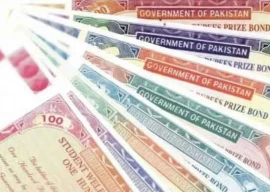
The committee also rejected the budget proposal of reducing income tax exemption threshold from Rs1.2 million to Rs600,000 in annual income. Instead, in its proposal, it suggested to set the exemption threshold at Rs1 million, aimed at providing relief to the inflation-stricken people whose disposable income would go down significantly from July.
Headed by Senator Farooq H Naek of the Pakistan Peoples Party (PPP), the standing committee recommended 20% increase in salaries of grade 1 to 16 employees and 10% for grade 17 to 22.
In the budget, the government has proposed 10% increase for grade 1 to 16 and only 5% increase for grade 17 to 20 officers. It did not increase salaries of grade 21 and 22 officers.
Alvi urges institutions to produce quality research work
Special Secretary Finance Omar Hameed opposed the government’s recommendation due to “fiscal constraints”. The committee’s recommendations are not binding on the government.
Owing to double-digit inflation and heavy taxation, the disposable income of people was expected to fall significantly and the government’s decision to give a nominal increase in salaries and impose high taxes would be tantamount to killing the people, remarked Senator Ayesha Raza Farooq of the Pakistan Muslim League-Nawaz (PML-N).
The Pakistan Tehreek-e-Insaf (PTI) government has estimated the collection of an additional Rs50 billion from the salaried class in the next fiscal year by increasing income tax rates.
FBR’s Member Inland Revenue Policy Dr Hamid Atiq Sarwar claimed that the increase in tax rates for the salaried class would not affect 80% of the population. That section of the population earned less than Rs50,000 a month, which was exempted from income tax, he said.
The standing committee chairman stopped the FBR from comparing salary rates of Pakistan and India, saying that the value of Indian currency was more than double the value of Pakistani rupee when compared with the US dollar.
Sarwar made a wrong statement in the parliamentary committee meeting when he claimed that there were no taxes on import of pulses. However, the government currently charges 2% withholding tax on the import value from tax return filers and 3% from non-filers.
PM directs raising retirement age
Sarwar told the committee that the FBR would fetch an additional Rs65 billion in income tax by increasing the minimum tax rate from 1.25% to 1.5%. The minimum tax is against the principle of fair taxation as it is charged on the total turnover instead of total income.
Zero-rating
With a majority of 4-1, the Senate standing committee rejected the government’s proposal of imposing 17% sales tax on five export-oriented sectors. The committee called for restoring the pre-budget status, when these sectors were not liable to pay any sales tax.
The government has proposed 17% sales tax at the manufacturing stage on sales of textile, leather, carpets, sports and surgical goods. It would have to refund the amount paid on exports to keep them free from sales tax.
“Not even one taxpayer has so far been timely paid sales tax refund and the budget proposal will immobilise 42% of the turnover of the textile sector, which will create serious liquidity issues,” said Jawed Bilwani, a leading industrialist.
“The government wants to penalise exporters for its failure to register wholesalers and retailers, who remain outside the tax net,” said Zubair Motiwala, another industrialist. In absolute terms, he said, Rs450 billion would be stuck with the FBR.
“It is correct that exporters’ refunds will be stuck with the FBR in the regular refund payment system, but the government will try to pay traders at the time of exports,” said FBR Chairman Shabbar Zaidi.
Sarwar said the FBR could not meet the Rs5.55-trillion proposed revenue collection target for the next fiscal year without putting additional burden on every sector of the economy.
Motiwala claimed that former finance minister Asad Umar had told the IMF that he would not tax exporters and the SRO 1125, which regulated the zero-rated system, would not be withdrawn. The new economic team did exactly the opposite.
Motiwala pointed out that the 17% sales tax would promote smuggling of clothes and garments under the Afghan transit trade.
“The five export-oriented sectors are the backbone of exports and I also share fears that 17% sales tax, even at the domestic stage, will encourage smuggling of clothes under the Afghan transit trade,” said Farooq H Naeek while asking the government to review its decision.
Published in The Express Tribune, June 20th, 2019.
Like Business on Facebook, follow @TribuneBiz on Twitter to stay informed and join in the conversation.

1732530816-0/BeFunky-collage-(88)1732530816-0-165x106.webp)
1720848500-0/Eminem-and-his-daugher-Hallie-(1)1720848500-0-165x106.webp)




1732486769-0/image-(8)1732486769-0-270x192.webp)









COMMENTS
Comments are moderated and generally will be posted if they are on-topic and not abusive.
For more information, please see our Comments FAQ